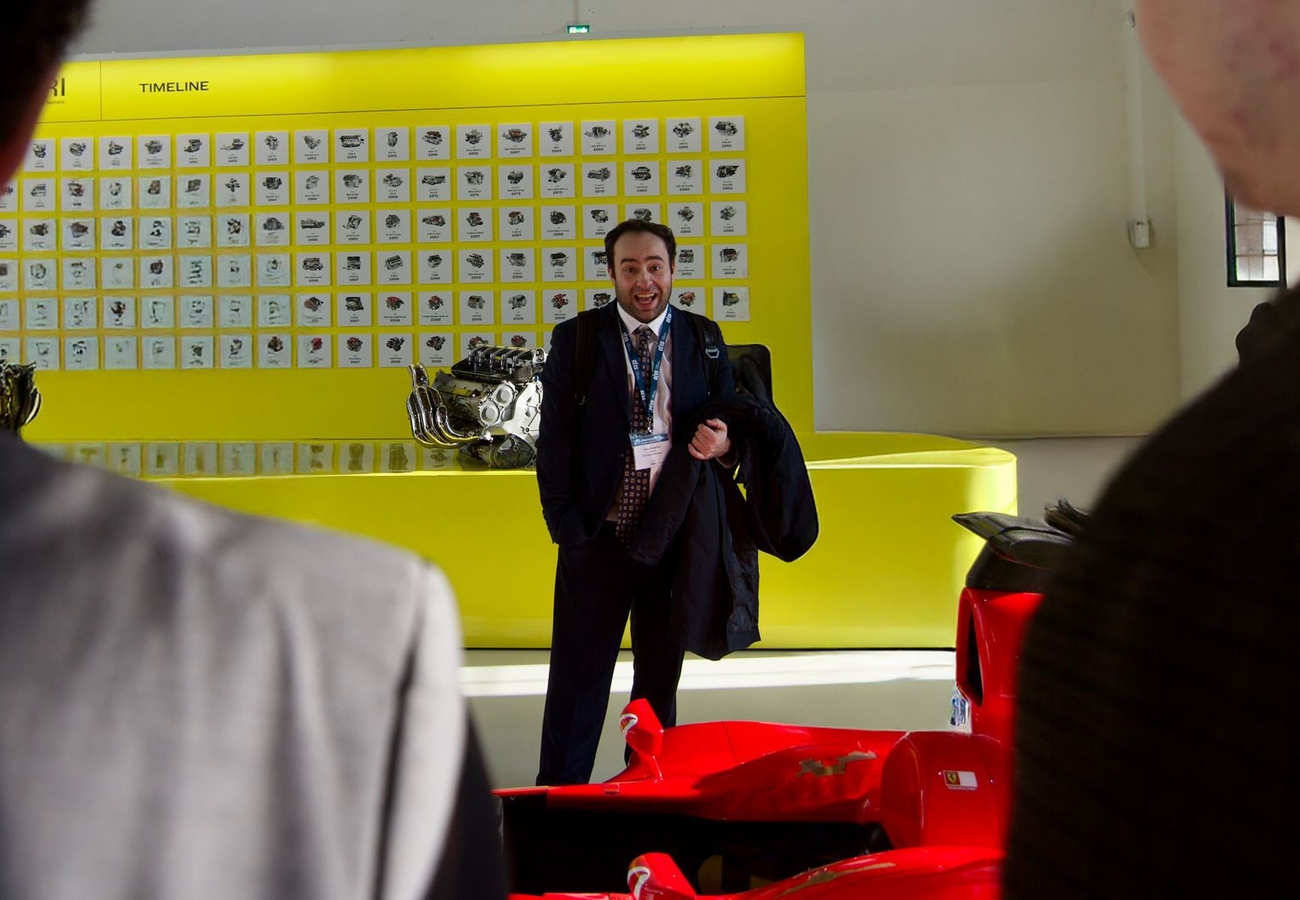FORGED IN FOOTBALL: SIMON GRUNWERG (FIFA MASTER 25th EDITION)

When Simon Grunwerg tells people he’s from Sheffield, they usually mention one of three things: football, cutlery, or music. For him, two of those played a much bigger role than just small talk.
Football was ever-present, from schoolyard games to Champions League nights at Old Trafford. Cutlery came through the family business, teaching early lessons in entrepreneurship and international trade. Together, they shaped him – local in identity, but global in ambition.
“From around age six or seven, a lot of my earliest memories are around football,” he says. The pull of the sport wasn’t just about watching. It was about belonging, first to Sheffield, and then to something bigger.
His bond with Manchester United deepened when his father won tickets in a charity auction that allowed the family to meet the players before the final match of the 1999 season. Simon was only six. “We got to meet Sir Alex Ferguson and all the players before the match, which they needed to win for the Premier League title. And then after the game, we watched the trophy presentation from the dugout.” The experience cemented football as more than just a game. It was family, memory, and meaning intertwined. “That team just didn’t give up, and they played exciting, high-intensity football,” he adds, reflecting on the values that drew him deeper into the game. With the Class of ’92, it was more than a team – it had that family feel. That really resonated with me.”
Those early memories turned into frequent trips to Old Trafford and Champions League nights. “We were under strict instructions from my mum that we had to be back before 11pm. It was a school night,” he says, laughing. “But it wasn’t just about the match. It was the car rides with my dad, talking about everything from football to school, and even practicing my German. We’d even discuss the different sponsors we would see at the match – what those companies did and their reasons for sponsoring.” For Simon and his dad, those matches were particularly magical: the atmosphere and seeing some of the world’s greatest players on the biggest stage.
Back in Sheffield, the local clubs offered their own imprint. Sheffield Wednesday, in particular, represented community identity. “I had a lot of stick from my friends over the years about being a glory supporter,” Simon laughs, remembering his simultaneous loyalty to United. “My dad grew up as a Sheffield Wednesday fan, and I also supported them and would regularly go to their matches.” This tension between supporting a hometown club and following one of the world’s giants mirrored Simon’s path: rooted in his local community but drawn toward horizons much larger than the ones he could find in Sheffield.
Still, that curiosity was enthusiastically nurtured at home. Simon’s grandfather, a talented winger in Vienna who played alongside members of the legendary Austria Wunderteam, came to Sheffield as a refugee and built a family business in cutlery. His father later expanded it, sparking an entrepreneurial streak that left a strong impression. “When I was at school, we would go to China, Thailand, Japan in our Christmas holidays. It was my first exposure to global business.” What also stood out to Simon was seeing European football team shirts in the markets and locals watching matches in the middle of the night. “It really opened my eyes to the global appeal of the game.” These trips gave Simon a front-row seat on how industries operated, while experiencing various football cultures reminded him of sport’s power to connect people from all over the world.
Alongside football, golf became another constant in Simon’s life. He first picked up a club as a boy on family holidays in Belgium and even managed to smash his mum’s bedroom window after a well-struck drive in the garden. “My dad still says it was the best shot he’s ever seen,” Simon reveals, smiling. Golf remained a touchstone: family rounds with his dad and siblings, a hole-in-one in Scottsdale where Tiger Woods once aced it, and later, he would discover, a way of reconnecting with sport during his working years in New York City. “I really fell back in love with golf at that point. It was a good way to meet people and explore other parts of the country.”
By the time Simon was a teenager, he had begun piecing together how sport and business might intersect. At 17, he researched the economic impact of the London 2012 Olympics, combining two interests. “I was interested in why countries host the Olympics – what they hope to gain and the benefits sport can bring to society.” The project opened his eyes to how the games that had shaped his childhood also carried global economic weight.
That thinking continued at university in Bristol, where Simon studied economics, finance and accounting, subjects that he saw as relevant for his future career. These subjects gave him flexibility and, ultimately, a head start on the accounting qualification he would later complete. After graduating, he began his career not in sport, but in advertising and media, a route that, while indirect, kept him close to the commercial side of the industry. “Advertising and media are key revenue sources in sport, and I was working with global brands that are major stakeholders in the industry,” he explains.
New York marked the next challenge in Simon’s career. After several years in London, he moved across the Atlantic in 2019, stepping into a global role that expanded on everything he had learned so far. The move was less about starting over than about widening his horizons: working with international clients, coordinating across regions, and gaining broader experience. Beyond work, the move also offered a new rhythm of life and even reconnected him to golf as a way of finding community outside the city.
As his career advanced, Simon kept his long-term aim in sight. “I was ready to move into the sport industry,” he says simply. Eight years in, he knew that while the path he was on was successful, it had always been a steppingstone rather than the destination. He wanted to be closer to the game itself, to its decision-making and future. The FIFA Master offered exactly that: a deliberate next step, a way to build on his commercial background, immerse himself in sport from multiple perspectives, and move with purpose toward the career he had always envisioned.
If sport had been the throughline of Simon’s personal story, the FIFA Master became the lever to bring it into his professional one. The course gave him a panoramic view of the industry, while sharpening the areas he already felt strongest in. “Working in a commercial strategy role or media rights particularly interest me given my background in advertising,” he reflects. “I’m still deciding what part of the industry and in which sport I want to focus, but I know I want to shape strategy and help drive that sport forward commercially and globally.”
What defines Simon’s outlook isn’t just ambition but the perspective he’s gathered along the way: football’s role in his family, golf as a personal constant, Sheffield’s grounding effect, Manchester United’s global influence, and the exposure he’s gained to the intricacies of international business through his family’s cutlery business. “Seeing my dad be so entrepreneurial with all the travelling definitely influenced my trajectory – and it gave me a global mindset too.” It’s an attitude he now brings to sport: seeing the business side not as an end in itself, but as a way to support communities, create opportunities, and help the game thrive.
By Geneva Decker
FIFA Master 25th edition student
FIFA Master - International Master in Management, Law and Humanities of Sport, ranked Europe's No.1 course a record 12 times by SportBusiness.
FIFA Master - 25 years of Excellence in Sport Business Education - organised by CIES in partnership with De Montfort University (UK), SDA Bocconi School of Management (Italy) and the University of Neuchâtel (Switzerland).









